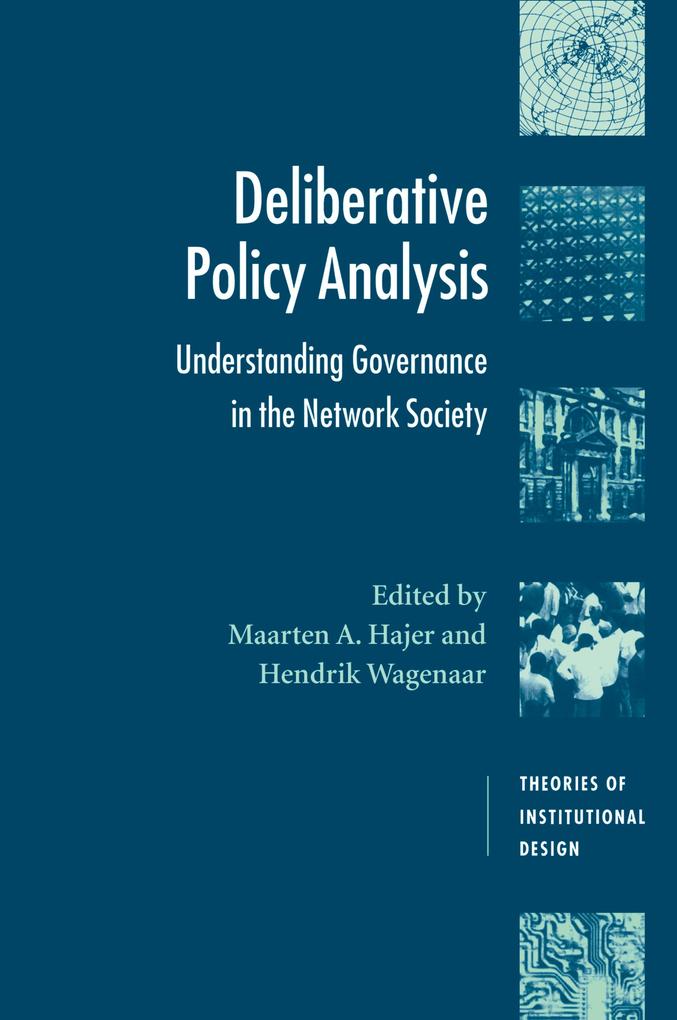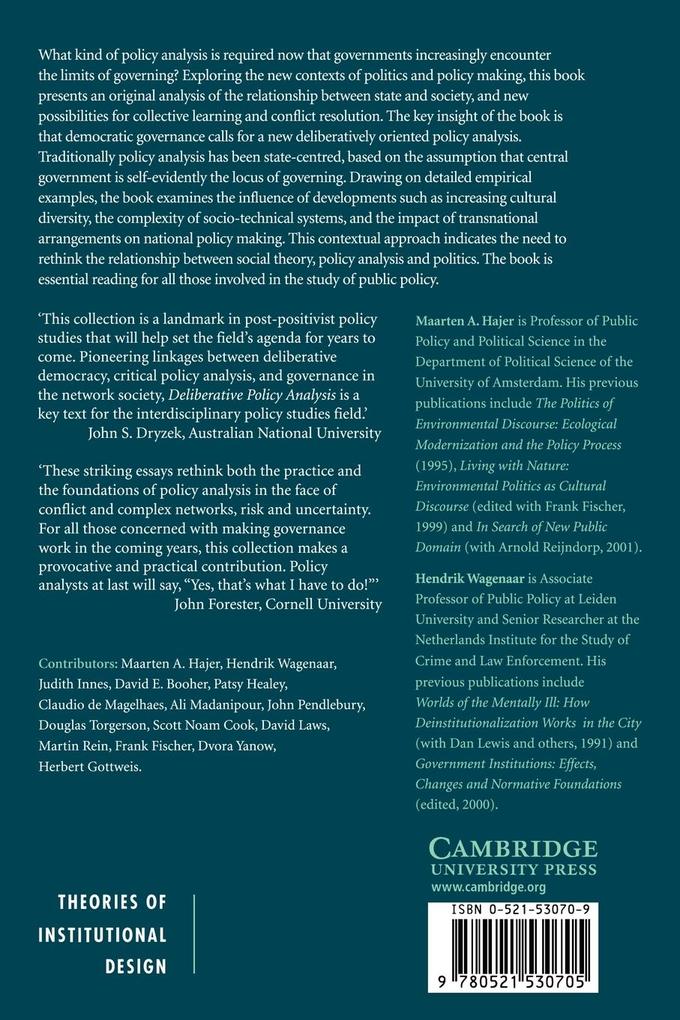
Zustellung: Di, 03.06. - Fr, 06.06.
Versand in 6 Tagen
VersandkostenfreiBestellen & in Filiale abholen:
Large-scale social and political changes have revolutionized policy-making. Traditionally, policy analysis has been state-centered, based on the assumption that central government is self-evidently the locus of government. However, policy-making is often carried out today in loosely organized networks of public authorities, citizen associations and private enterprises. The contributors to this book argue that democratic governance now calls for a new deliberatively-oriented policy analysis. They provide examples from around the world to demonstrate how this would work in practice.
Inhaltsverzeichnis
Editors' introduction Maarten A. Hajer and Hendrik Wagenaar; Part I. Policy Conflict and Deliberation in the Network Society: 1. Collaborative policy making: governance through dialogue Judith Innes and David Booher; 2. Place, identity and local politics: analysing initiatives in deliberative governance Patsy Healey, Claudio de Magelhaes, Ali Madanipour and John Pendlebury; 3. A frame in the fields. Policy making and the reinvention of politics Maarten Hajer; Part II. Rethinking Policy Practice: 4. Democracy through policy discourse Douglas Torgerson; 5. Understanding policy practices: action, dialectic and deliberation in policy analysis Hendrik Wagenaar and Scott Noam Cook; 6. Reframing practice David Laws and Martin Rein; Part III. Foundations of a Deliberative Policy Analysis: 7. Beyond empiricism: policy analysis as deliberative practice Frank Fischer; 8. Accessing local knowledge: policy analysis and communities of meaning Dvora Yanow; 9. Theoretical strategies of post-structuralist policy analysis: towards an analytics of government Herbert Gottweiss.
Produktdetails
Erscheinungsdatum
22. Dezember 2005
Sprache
englisch
Seitenanzahl
324
Herausgegeben von
Brian Barry, Robert E. Goodin, Hendrik Wagenaar
Verlag/Hersteller
Produktart
kartoniert
Gewicht
528 g
Größe (L/B/H)
229/152/20 mm
ISBN
9780521530705
Entdecken Sie mehr
Pressestimmen
'This collection is a landmark in post-positivist policy studies that will help set the field's agenda for years to come. Pioneering linkages between deliberative democracy, critical policy analysis, and governance in the network society, Deliberative Policy Analysis is a key text for the interdisciplinary policy studies field.' John S. Dryzek, Australian National University 'These striking essays rethink both the practice and the foundations of policy analysis in the face of conflict and complex networks, risk and uncertainty. For all those concerned with making governance work in the coming years, this collection makes a provocative and practical contribution. Policy analysts at last will say, 'Yes, that's what I have to do'!' John Forester, Cornell University
Bewertungen
0 Bewertungen
Es wurden noch keine Bewertungen abgegeben. Schreiben Sie die erste Bewertung zu "Deliberative Policy Analysis" und helfen Sie damit anderen bei der Kaufentscheidung.











